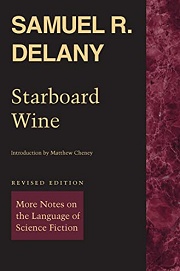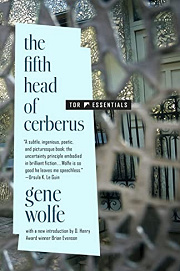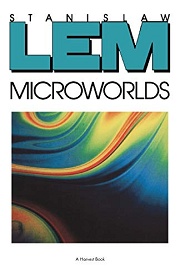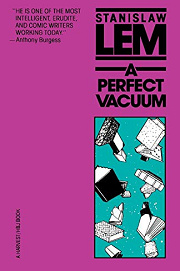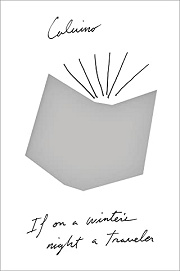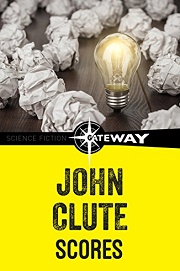Share your thoughts in a quick Shelf Talk!
Starboard Wine by Samuel R. Delany
What makes science fiction more than rockets and ray guns? In Starboard Wine, one of the field’s most provocative thinkers charts bold courses through genre, language, and meaning—revealing how speculative stories reshape how we read the world. Erudite yet electric, these essays will make you see SF—and literature itself—with fresh eyes.
Have you read this book? Share what you liked (or didn’t), and we’ll use your answers to recommend your next favorite read!
Love Starboard Wine but not sure what to read next?
These picks are popular with readers who enjoyed this book. Complete a quick Shelf Talk to get recommendations made just for you! Warning: possible spoilers for Starboard Wine below.
In Starboard Wine, did you enjoy ...
... the rigorous, clue-rich reading protocols Delany celebrates?
The Fifth Head Of Cerberus by Gene Wolfe
If you relished how Starboard Wine invites you to read SF with forensic attention, you’ll love how Wolfe makes you earn every revelation. Across the triptych centered on Number Five, the cloned heir of a brothel on Saint Croix, you piece together the truth of the colonized twin worlds, the identity puzzles surrounding Mr. Million, and the possibly replaced aboriginals of Saint Anne. Like Delany’s close readings, Wolfe’s layered hints—names, myths, unreliable documents—reward rereads and make interpretation part of the adventure.
... philosophical, systems-level criticism of what SF can and cannot do?
Microworlds by Stanislaw Lem
Delany’s essays probe how SF means; Lem goes after why it matters. In Microworlds, pieces like “On the Structural Analysis of Science Fiction” and “Science Fiction: A Hopeless Case—With Exceptions” map the genre’s logical architectures and its blind spots, much as Starboard Wine interrogates reading protocols. You’ll get the same bracing mix of theory, close reading, and big claims—delivered with Lem’s dry wit and razor logic.
... playful, meta-critical riffs that blur reviews and fiction?
A Perfect Vacuum by Stanislaw Lem
If you enjoyed the way Starboard Wine dances at the border of criticism and creation, Lem’s faux reviews of nonexistent books will delight you. From the ecstatic takedown of “Gigamesh” to the sociological send-up “Sexplosion,” each piece performs criticism as storytelling. It’s the same game Delany plays—showing how interpretation makes worlds—only here the reviews are the stories.
... self-reflexive storytelling about the act of reading itself?
If on a winter's night a traveler by Italo Calvino
Where Starboard Wine turns you into a conscious reader of SF, Calvino turns you into a character called “the Reader,” forever starting (and restarting) novels within the novel. The frame narrative, the second-person address, and the fragmented openings echo Delany’s fascination with how texts cue us to build worlds—only here those cues become the plot, and your act of reading becomes the mystery to solve.
... lush, baroque critical prose about speculative fiction’s possibilities?
Scores by John Clute
If the rhetorical fire and ornate cadences of Starboard Wine hooked you, Clute’s reviews and essays will feel like home. In Scores, his takes on writers like Greg Egan, M. John Harrison, and Kim Stanley Robinson combine taxonomy, neologism, and narrative savvy—criticism that performs the very world-sensing Delany advocates, with sentences that crackle as they parse futures and fables.
Unlock your personalized book recommendations! Just take a quick Shelf Talk for Starboard Wine by Samuel R. Delany. It’s only a few questions and takes less than a minute.
